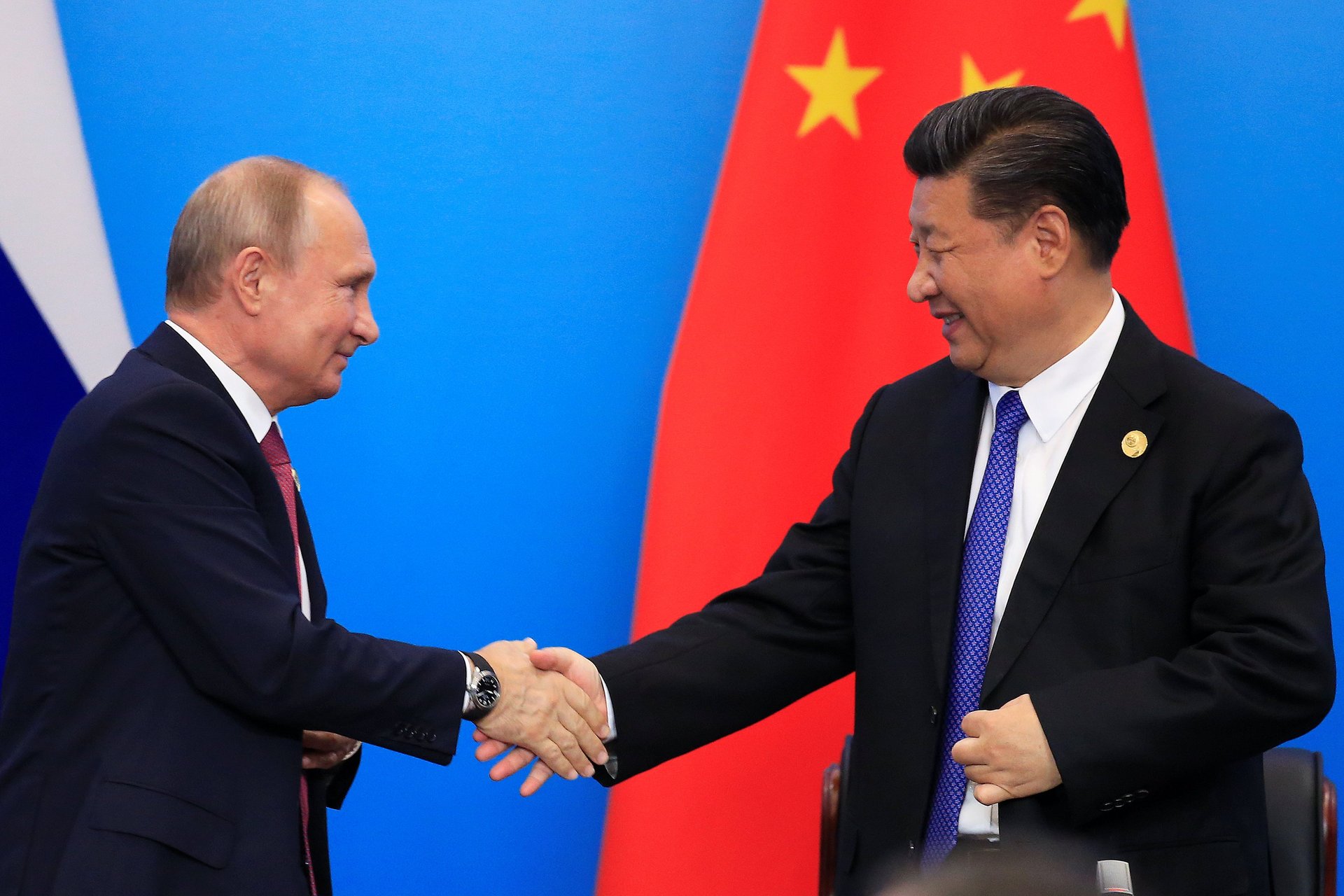Russia is Beijing’s best ally in the disinformation war against Hong Kong
The Hong Kong protests have hidden leaders. US officials are “openly colluding” with the movement. And the demonstrators could “destroy” Hong Kong. Sound familiar?


The Hong Kong protests have hidden leaders. US officials are “openly colluding” with the movement. And the demonstrators could “destroy” Hong Kong. Sound familiar?
That’s Beijing’s line on the six months of protests in Hong Kong, but these remarks come from a documentary released by Moscow-backed English-language news channel Russia Today. After the RT video, called Hong Kong Unmasked, was shared this month on Chinese social media platform Weibo, it gained a surge of praise in recent days for offering the “true” version of events in Hong Kong.
“This is the only western media that dares to speak the truth,” said user Yan Huang Gua Ricky, commenting on RT’s Weibo post (link in Chinese). Another user posted, “I am going to become a fan of Russian president Vladimir Putin, who is a cool man as his country cares about things happening in other places.” Chinese internet users also criticized Chinese state media for not having as effective an overseas media strategy as RT, which has played an essential role in transporting the Kremlin’s messaging globally.
“Chinese media are not as internationalized as RT. So many years have passed, Chinese outlets still cannot have influence overseas,” said user A Long.
On YouTube, where the video was published on Nov. 29 and labeled as coming from an outlet funded “in whole or in part by the Russian government,” it has logged 85,000 views and more than 1,800 comments, mostly also praising RT for “reporting the truth” and criticizing the US as being “the biggest problem” in the world.
This isn’t the first time that Russia has echoed China’s stance on protests in Hong Kong—that goes back to 2014, when Hong Kong saw the street occupation known as the Umbrella Movement. In August, the Moscow Times reported the two countries planned to meet to discuss “US meddling” as Moscow takes a similar line on its own pro-democracy protests of recent months, for example, accusing Google of promoting videos of an “illegal” rally on YouTube. Last week, Polygraph.info, a fact-checking site from Voice of America and Radio Free Europe, both US-funded, said that a Russian-language report on a November rally in Hong Kong attributed fabricated quotes that appeared more extremist to democracy activist Joshua Wong.
The sentiment among China’s internet users that Russia’s media strategy remains far more effective is not unfounded. Beijing has tried to project the Hong Kong protests overseas as an extremist-fueled separatist movement using state-run media and through fake Twitter accounts—but these efforts haven’t been particularly sophisticated. In comparison, Russia’s strategy of using social media handles cultivated over years to wade into divisive topic in other countries has blended into western discussions more successfully and helped Kremlin to sow confusion and distrust. Now the two countries are trying to work more closely together on their global messaging.
“China has been studying the propaganda strategies of Russia, including how the latter manipulates media, mobilizes its youth and trains its hackers. The two countries’ state-owned outlets, including Global Times and Russian state-owned news agency Sputnik have had regular people exchanges,” said Wu Qiang, a former politics lecturer at China’s Tsinghua University in Beijing, who has been studying the two countries’ collaboration in their media campaigns.
The efforts to enhance collaboration around propaganda include an annual forum for Chinese and Russian state media outlets, now in its fifth year, with the most recent edition in Vladivostok. At the event, executives from China’s People’s Daily and Russia’s Rossiyskaya Gazeta, outlets that represent the official voice, advocated for coordinating more closely to fend off “twisted and biased coverage” from western outlets, China’s Xinhua state news agency reported.
Meanwhile, Hong Kong Leaks, a doxxing website used to reveal personal details of some Hong Kong pro-democracy figures, was at one time hosted by a Russian service, according to the Australian Strategic Policy Institute think tank.
Overall, China and Russia have formed closer ties, partly driven by increased tensions with the US. The two countries are “more aligned than at any point” since the mid-1950s, according to a January report from Dan Coats, then US director of National Intelligence. Chinese president Xi Jinping, who has visited Russia almost 30 times in six years, also made unusually enthusiastic remarks about Putin in June, calling the Russian leader his “best friend and colleague.”